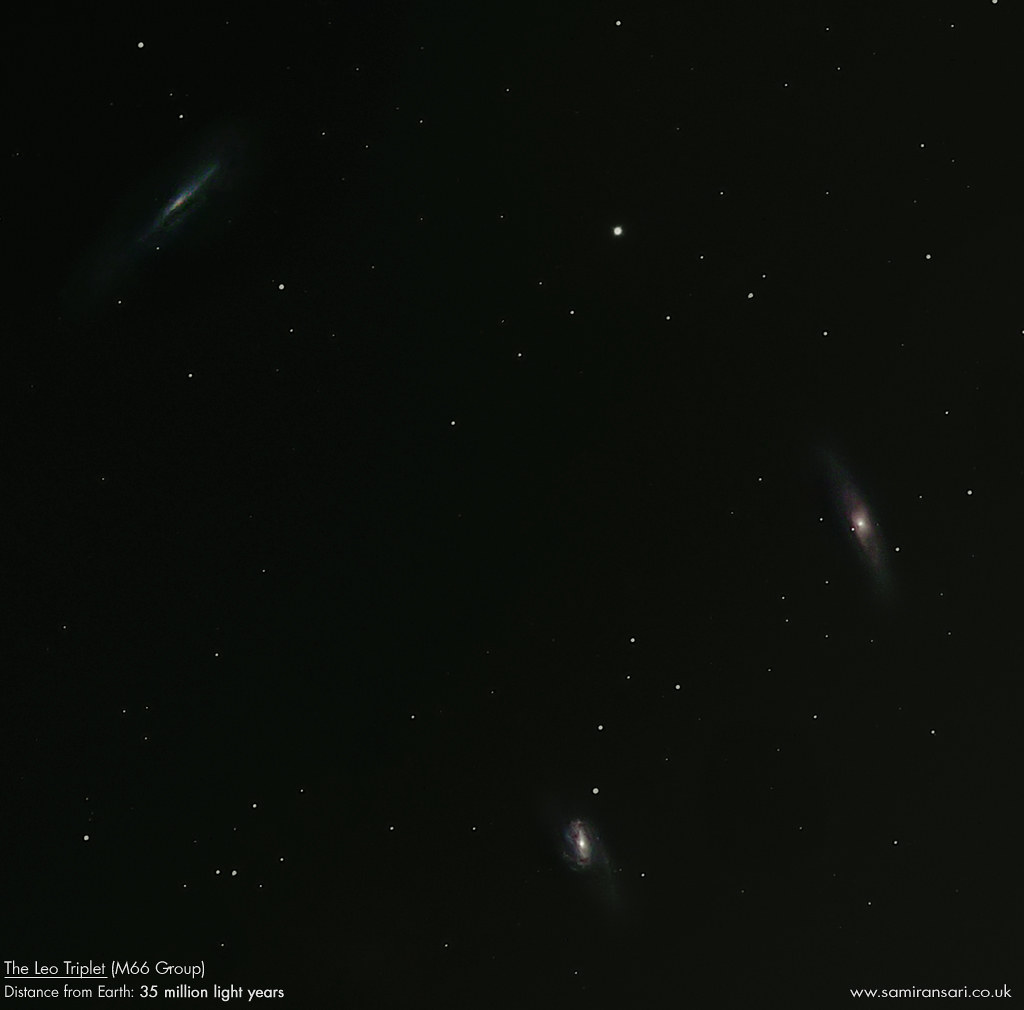Associate
- Joined
- 17 Sep 2009
- Posts
- 546
- Location
- UK
Had a quick go at the Leo triplet the other night. Needs a lot more exposures but it's a start:



Nice images Samir.
I need to sort out the two banes I have - tracking/polar alignment and noise/flats.

 in hope of reducing some noise. There's a peltier on the back of the heatsink attached to a strip of copper attached to the back of the sensor. I still need to encase the camera a polystyrene box.
in hope of reducing some noise. There's a peltier on the back of the heatsink attached to a strip of copper attached to the back of the sensor. I still need to encase the camera a polystyrene box.
Noise is my nemesis
I'm using a DSLR so its even worse. I have however just finished modding itin hope of reducing some noise. There's a peltier on the back of the heatsink attached to a strip of copper attached to the back of the sensor. I still need to encase the camera a polystyrene box.
Skywatch have released a new firmware V3.28 that has a polar Re-alignment feature, I havent had a chance yet to test it but I read it works great.

Hi all, I've got a Canon 5D Mark II, and I've always been intrigued and amazed by astrophotography. What would be a good entry level setup for taking photos of planets, and other awesome things?
I'm assuming you need a mix of telescopes and computer software to do it? I've only tried using a telescope a couple of times in my life, I don't know if they were broken but it was almost impossible to look at anything but the moon.

Exact same position as you (even have the same camera). Having had a good look through this thead it seems that this one http://www.firstlightoptics.com/reflectors/skywatcher-explorer-200p-eq5.html is recommended for astrophotography on here?
I'll be honest though, its mega confusing with all the talk of mounts, gotos, motors etc.

